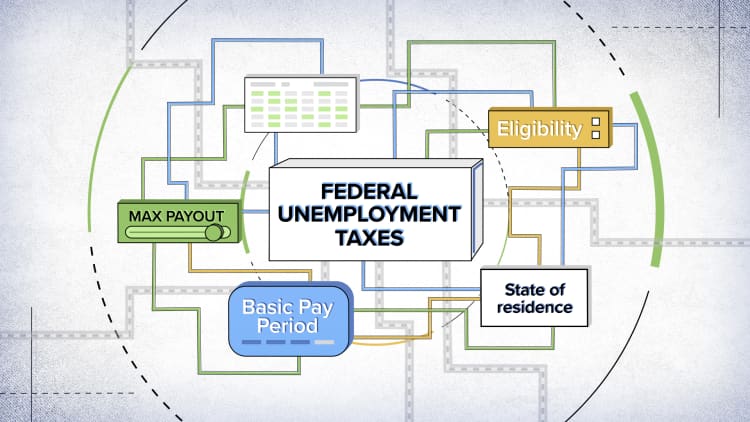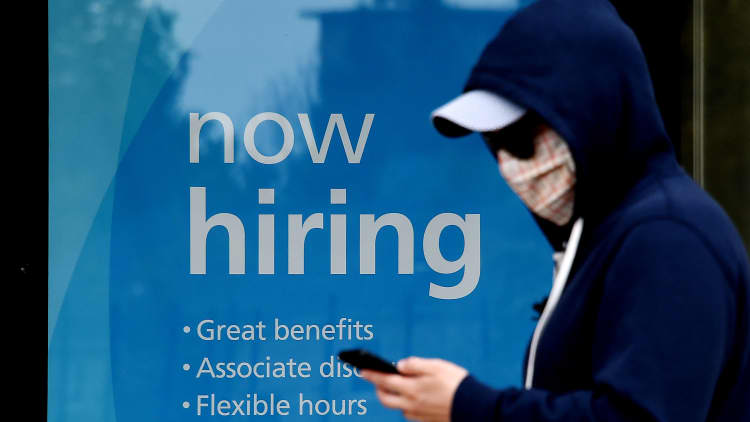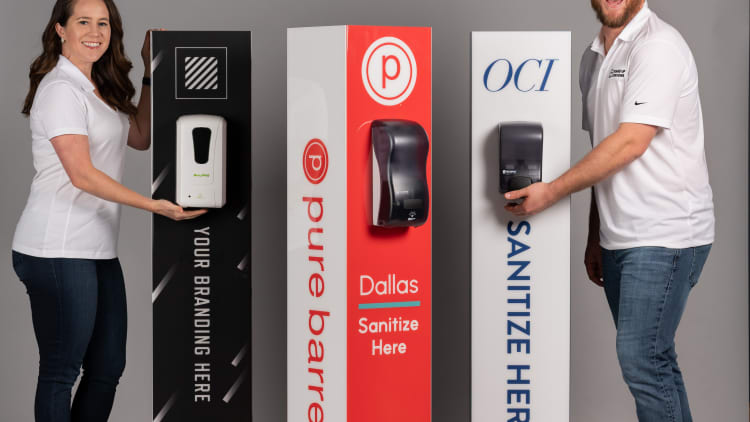The death of those extra $600 weekly unemployment payments now seems imminent.
Republicans are intent on ending the enhancement to jobless benefits, created by the CARES Act in late March to prop up household income for the millions who've lost their jobs to the coronavirus pandemic.
The subsidy, which comes on top of typical state aid, will end after July absent congressional intervention.
More from Personal Finance:
August is shaping up to be 'ugly' for millions
Florida cuts 1,000 from unemployment office
Trump wants payroll tax cuts in next coronavirus bill
Senate Majority Leader Mitch McConnell, R-Ky., recently said an extension of the $600 payments wouldn't be in the next coronavirus relief package that senators will consider starting next week.
But why have many Republicans expressed a dislike for the current policy?
The answer comes down to its generosity.

Paid not to work
Lawmakers intended the $600-a-week supplement to fully replace lost wages for the average American. In other words, someone who lost a job would be made whole.
When combined with state benefits, the extra pay — funded by the federal government — gives the average person just shy of $1,000 a week.
There are currently about 32 million people collecting unemployment benefits, according to the Labor Department.

The problem, in critics' eyes, is that many people can theoretically make more money from unemployment than from working. That's true especially for lower-wage workers.
Around two-thirds of workers eligible for unemployment insurance can get benefits that exceed prior earnings, according to a University of Chicago paper published in May. A fifth could at least double their lost wages.
That dynamic offers a disincentive to return to work and could dampen the economic rebound, opponents contend.
We won't be doing it in the same way. We're in a dramatically different situation.Steven MnuchinU.S. Treasury secretary
In normal times, state unemployment systems replace far less: a third of prior pay for the average person, according to a W.E. Upjohn Institute for Employment Research paper published in January.
"We should never pay people not to work," Sen. John Cornyn, R-Texas, said last month during an unemployment hearing. "We should try to help people get back to work."
'Dramatically different'
A substantial rebound in job gains over May and June — about 7.5 million total — emboldened Republicans to call for an end to the $600 weekly subsidy, and instead promote laid-off workers to get back to work.
Some have proposed a cash bonus for those who find jobs, as a replacement for the weekly supplement. At the very least, the Trump administration and others have called for any forthcoming subsidy to be less generous.
Americans can "assume it'll be no more than 100%" of lost wages, Treasury Secretary Steven Mnuchin said of a new unemployment supplement.
"We won't be doing it in the same way," he told CNBC last week. "We're in a dramatically different situation.
"Many businesses are open," Mnuchin said. "Many businesses want to hire more people today."
Some economists have called for a weekly supplement of no more than $400.
Jobs are scarce
But scrapping the $600 weekly aid doesn't align with reality, according to Democrats, who want to extend the $600 subsidy, and other proponents of the current policy.
The $600 payments don't offer a disincentive to find work in the current labor market, which has been ravaged by the coronavirus-induced recession, they said.
The 11.1% unemployment rate, while improved from the pandemic-era peak in April, is still higher than any other period since the Great Depression.
And there are more than three times as many unemployed Americans as there are job openings — nearly 18 million versus 5.4 million, respectively, according to most recent data from the Bureau of Labor Statistics.
That means most jobless Americans couldn't find work even if they wanted to.
Millions of Americans continue to apply for unemployment benefits each week, and spiking Covid-19 infections threaten to re-shut some businesses, as has been the case in California, Nevada and Texas.
"Cutting off the $600 cannot incentivize people to get jobs that aren't there," said Heidi Shierholz, director of policy at the left-leaning Economic Policy Institute and a former chief economist at the Labor Department.
Saving millions from hardship
Ending the $600 payments will also cause undue financial hardship for families, Democrats argue.
The HEROES Act, passed by the Democrat-led House of Representatives in May, would keep the benefit into early next year. Some have proposed phasing out the supplemental pay as the unemployment rate falls.
Income for the average unemployment recipient would fall by about 61% if nothing were to replace the current subsidy.
States paid an average $383 per week in the first quarter of this year, according to Labor Department data. The least generous state, Mississippi, pays much less — a resident there can get a maximum of $235 a week.
"These benefits are what's saving millions of jobless people from hunger and homelessness in the middle of a pandemic," Sen. Ron Wyden, D-Ore., said during an unemployment hearing in June.



